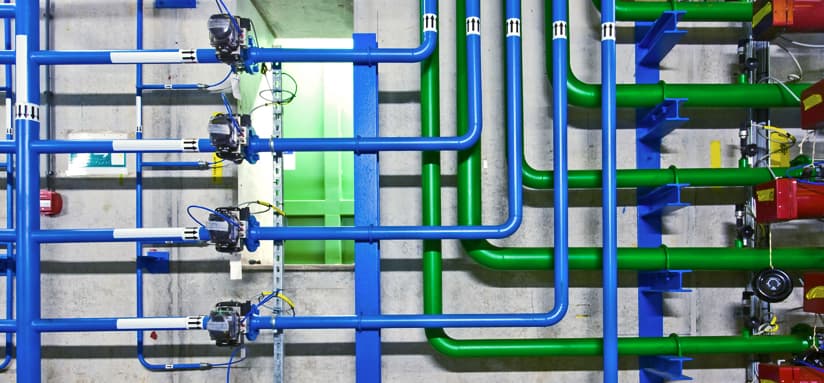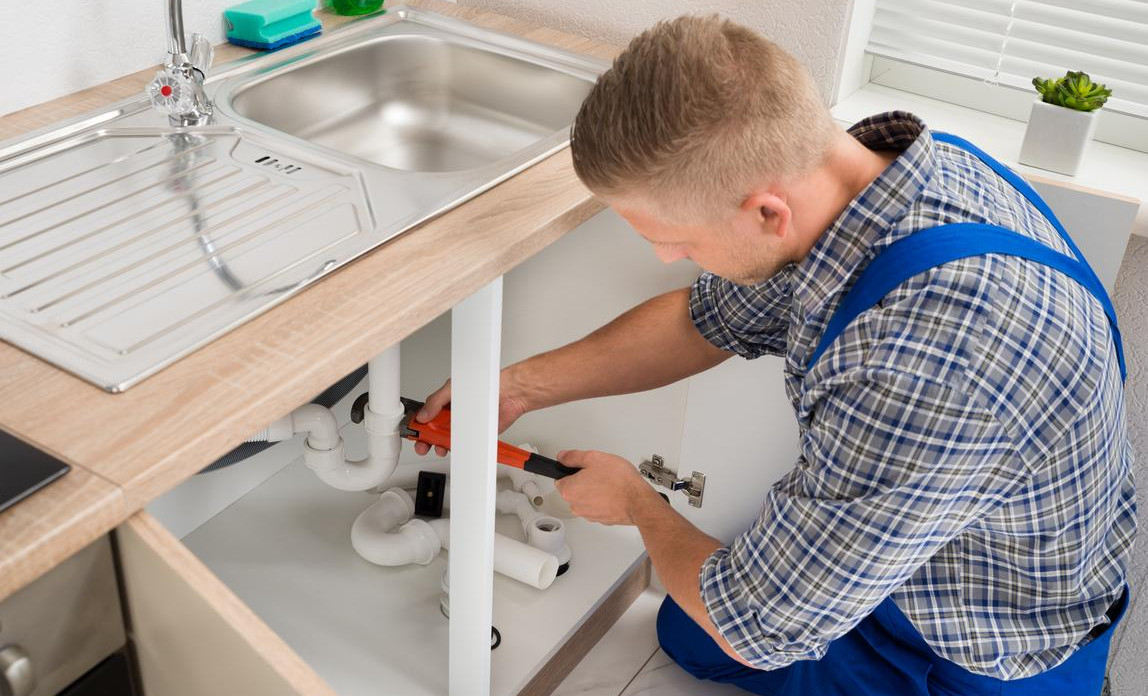The Core Elements of Your Home's Plumbing System
The Core Elements of Your Home's Plumbing System
Blog Article
The content listed below in relation to Exploring Your Homes Plumbing Anatomy is incredibly enjoyable. Try it and make your own personal final thoughts.

Recognizing how your home's plumbing system works is necessary for every single house owner. From delivering clean water for drinking, cooking, and bathing to safely eliminating wastewater, a properly maintained pipes system is crucial for your household's health and wellness and convenience. In this extensive overview, we'll check out the detailed network that composes your home's pipes and offer tips on maintenance, upgrades, and managing usual concerns.
Intro
Your home's pipes system is greater than just a network of pipes; it's an intricate system that guarantees you have access to clean water and effective wastewater elimination. Recognizing its parts and just how they collaborate can aid you protect against costly repair work and guarantee whatever runs smoothly.
Standard Parts of a Pipes System
Pipelines and Tubes
At the heart of your pipes system are the pipelines and tubes that carry water throughout your home. These can be made of various materials such as copper, PVC, or PEX, each with its advantages in terms of toughness and cost-effectiveness.
Components: Sinks, Toilets, Showers, and so on.
Fixtures like sinks, toilets, showers, and bathtubs are where water is used in your home. Comprehending exactly how these fixtures attach to the pipes system assists in identifying issues and preparing upgrades.
Shutoffs and Shut-off Points
Valves manage the flow of water in your plumbing system. Shut-off valves are crucial during emergencies or when you need to make fixings, permitting you to isolate parts of the system without disrupting water flow to the entire residence.
Water Supply System
Main Water Line
The primary water line links your home to the metropolitan supply of water or a private well. It's where water enters your home and is distributed to different fixtures.
Water Meter and Stress Regulatory Authority
The water meter steps your water usage, while a stress regulator guarantees that water flows at a safe stress throughout your home's pipes system, protecting against damages to pipes and fixtures.
Cold Water vs. Hot Water Lines
Understanding the difference in between cold water lines, which supply water straight from the primary, and warm water lines, which bring heated water from the hot water heater, aids in fixing and planning for upgrades.
Water drainage System
Drain Piping and Traps
Drain pipes carry wastewater far from sinks, showers, and bathrooms to the sewage system or sewage-disposal tank. Catches stop sewer gases from entering your home and likewise catch debris that might cause obstructions.
Ventilation Pipelines
Ventilation pipes permit air right into the drainage system, protecting against suction that could reduce drainage and trigger traps to empty. Appropriate air flow is necessary for maintaining the stability of your plumbing system.
Significance of Correct Water Drainage
Making sure correct water drainage avoids back-ups and water damage. On a regular basis cleaning up drains and preserving traps can stop costly repair services and expand the life of your pipes system.
Water Furnace
Types of Hot Water Heater
Water heaters can be tankless or traditional tank-style. Tankless heating systems warmth water on demand, while tanks save heated water for instant use.
Updating Your Pipes System
Reasons for Upgrading
Upgrading to water-efficient components or replacing old pipelines can improve water high quality, lower water bills, and boost the worth of your home.
Modern Plumbing Technologies and Their Advantages
Check out modern technologies like clever leak detectors, water-saving commodes, and energy-efficient water heaters that can save cash and reduce environmental influence.
Cost Factors To Consider and ROI
Calculate the in advance expenses versus lasting savings when thinking about pipes upgrades. Lots of upgrades spend for themselves through decreased utility costs and less repair work.
Exactly How Water Heaters Attach to the Pipes System
Understanding exactly how hot water heater attach to both the cold water supply and hot water distribution lines aids in detecting concerns like insufficient hot water or leaks.
Maintenance Tips for Water Heaters
On a regular basis flushing your hot water heater to eliminate sediment, examining the temperature level setups, and evaluating for leakages can prolong its life expectancy and enhance power performance.
Usual Pipes Problems
Leakages and Their Causes
Leaks can happen because of aging pipes, loosened fittings, or high water stress. Attending to leaks quickly avoids water damages and mold growth.
Obstructions and Clogs
Blockages in drains and toilets are typically triggered by flushing non-flushable products or a buildup of grease and hair. Utilizing drain displays and bearing in mind what decreases your drains pipes can stop blockages.
Signs of Pipes Issues to Look For
Low water stress, slow drains pipes, foul odors, or uncommonly high water bills are signs of potential plumbing problems that need to be resolved promptly.
Plumbing Maintenance Tips
Normal Assessments and Checks
Schedule yearly plumbing examinations to catch issues early. Try to find signs of leakages, rust, or mineral buildup in taps and showerheads.
Do It Yourself Upkeep Tasks
Straightforward jobs like cleaning tap aerators, checking for commode leaks using color tablets, or shielding exposed pipelines in chilly environments can stop major pipes issues.
When to Call a Specialist Plumber
Know when a pipes problem calls for professional competence. Attempting intricate repair services without proper understanding can lead to even more damages and higher repair service costs.
Tips for Minimizing Water Usage
Simple routines like repairing leakages promptly, taking much shorter showers, and running complete loads of washing and meals can save water and lower your energy costs.
Eco-Friendly Plumbing Options
Think about lasting plumbing materials like bamboo for floor covering, which is durable and eco-friendly, or recycled glass for counter tops.
Emergency situation Readiness
Steps to Take During a Plumbing Emergency
Know where your shut-off shutoffs are located and exactly how to shut off the water supply in case of a burst pipe or significant leakage.
Importance of Having Emergency Situation Get In Touches With Handy
Maintain get in touch with details for local plumbers or emergency situation solutions conveniently offered for quick action during a pipes crisis.
Ecological Impact and Conservation
Water-Saving Components and Devices
Setting up low-flow faucets, showerheads, and toilets can considerably reduce water usage without giving up performance.
DIY Emergency Fixes (When Appropriate).
Temporary solutions like using air duct tape to patch a leaking pipeline or placing a container under a leaking faucet can lessen damages up until a specialist plumbing technician arrives.
Final thought.
Understanding the anatomy of your home's pipes system equips you to keep it efficiently, saving money and time on repair work. By complying with routine maintenance regimens and remaining notified regarding modern-day pipes innovations, you can ensure your pipes system operates efficiently for many years ahead.
HOW YOUR PLUMBING SYSTEM WORKS
Which Pipes Do What?
Blue lines = fresh water supply entering the building Red lines = hot water supply entering the building Grey lines = pipes carrying waste away from the building and venting pipes carrying gases away from the building (through the roof) YOUR MAIN PLUMBING SYSTEMS
There are two main plumbing systems that support your home s basic plumbing needs one that brings clean water into your home, and one that sends dirty water away from your home. Connected to the toilet, bath, shower, and other faucets in your home, these two systems keep your water flowing in the right directions.
ACCESSING FRESH WATER
Fresh and clean water is brought into your home through the main water supply line . Filtered through one pipe, this water is pressured to flow into the various fixtures in your home at any given time.
This water can be sourced from a well located on your property, a pond or river (mostly cottages), or, as in most cases, from the city s municipal water treatment centre. However, it is important to note that water that is untreated, such as the water siphoned from ponds or rivers, may not be safe to drink. Personal water supplies always need to be treated for hardness and contaminants before consumed.
MUNICIPAL WATER SUPPLIES
Improve taste and odour Remove sediment Eliminate hardness Reduce chlorine COLD WATER SUPPLY VS. HOT WATER SUPPLY
Cold water flows into your home or building through the service line, which then distributes hot or cold water to your fixtures. This line is most commonly run through a central column that runs floor to floor. Hot water runs in short and straight pipes as the longer the pipeline, the more heat that will be lost in the transfer. Having shorter pipes also allows residents to access hot water more quickly.
WASTE WATER SYSTEM
Your wastewater system is divided into two parts pipes that send wastewater away from your home and venting pipes that send sewer gas away from your home. Sewage water travels through pipes that flush the water and waste towards local sewers that are operated and managed by your city or town. Most sewer systems rely on gravity to move the wastewater to where it needs to go.
The further away from your toilet or sink, the larger wastewater pipes become. This allows for waste to be disposed of from various parts of your home or business at once without pipe blockages. The angle and flow of these pipes are also essential for keeping your waste pipes clear of build up.
https://harrisplumbing.ca/how-your-home-plumbing-system-works/

We had been made aware of that write-up about Anatomy of a House: Understanding the Components from a good friend on another web property. Sharing is good. You won't know, you may be helping someone out. Thanks a lot for being here. Kindly check up our website back soon.
Book An Appointment Report this page